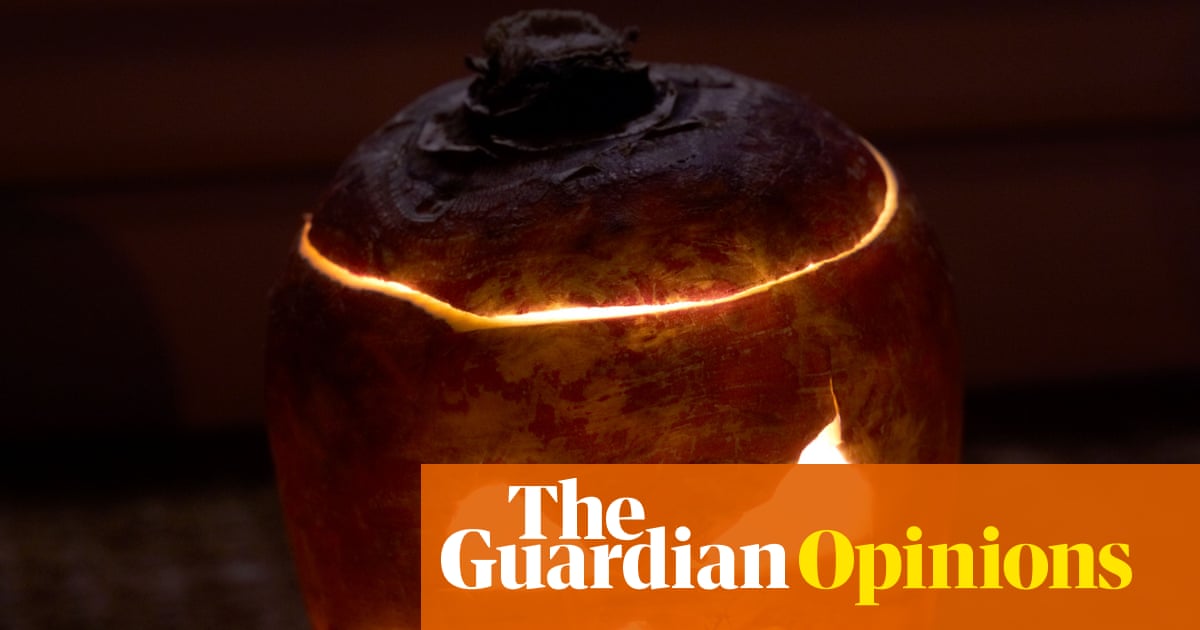
"For centuries the supernatural, and Halloween in particular, have been contested territory. Folklorists have interpreted Halloween as a relic of pre-Christian Celtic beliefs, when the turn of the seasons was thought to weaken the membrane separating the living and the dead. Some Christian evangelicals, especially in the US, view it as a sinister and sinful celebration of the occult. There's also the perennial complaint that it's nothing more than a recent, brash American import. None of these claims is quite true."
"Evangelicals' fear reveals more about their own brand of Christianity than about why Halloween has its ghoulish associations. I am a curator at English Heritage, and from tales of a rotting revenant rising from its grave at Byland Abbey to a phantom drummer boy at Richmond Castle, almost every one of our sites has a story to make your hair stand on end."
"As for Americanisation, most of Halloween's familiar rituals began on this side of the Atlantic: carving lanterns (traditionally from turnips); guising or dressing up; mischief or misrule; and going door to door asking for treats a form of licensed begging that helped strengthen community ties. The small oaty soul cakes sometimes offered in return were first recorded in the 1400s, showing that Halloween had long been Christianised,"
Multiple competing explanations exist for Halloween's ghoulish associations: alleged pre-Christian Celtic roots, evangelical opposition, and supposed Americanisation. Evidence for an ancient supernatural festival is weak and appears in much later sources. Evangelical alarm often reflects specific forms of Christianity rather than historical origins. English Heritage sites preserve many ghostly tales and local legends. Core Halloween practices—carved lanterns (originally turnips), guising, misrule, and door-to-door begging for treats—developed in Britain. Small oaty soul cakes were recorded in the 1400s, indicating long-standing Christianisation as All Hallows' Eve, while All Saints' Day commemorates saints and blessed souls; most Christians faced purgatory.
Read at www.theguardian.com
Unable to calculate read time
Collection
[
|
...
]